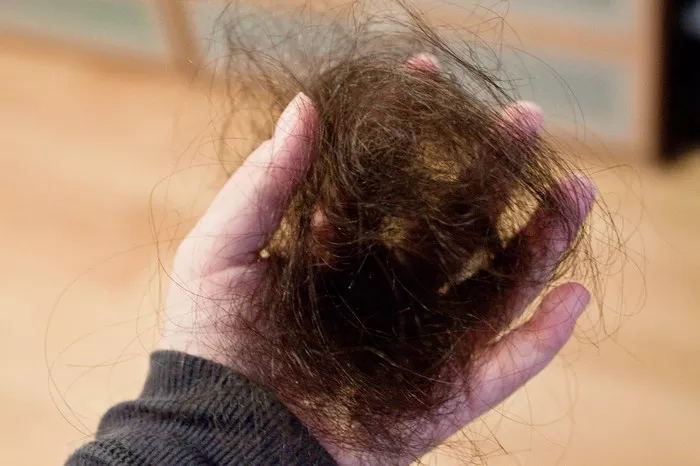In the fast-paced world we live in, a good night’s sleep is often sacrificed in the pursuit of productivity. However, the impact of insufficient sleep goes beyond just feeling tired; it can affect various aspects of our health, including the health of our hair. This article explores the relationship between lack of sleep and hair loss, shedding light on whether this issue can be reversed and offering insights into effective strategies for restoring hair health.
Understanding the Sleep-Hair Connection
Before delving into solutions, it’s essential to understand the intricate relationship between sleep and hair health. Hair follicles have their own circadian rhythm, influenced by the body’s internal clock. During the sleep cycle, the body undergoes crucial repair and regeneration processes, and this includes the renewal and growth of hair. Lack of sleep disrupts these processes, potentially leading to a range of hair-related issues.
The Impact of Sleep Deprivation on Hair Health
Sleep deprivation can trigger a cascade of physiological changes that negatively impact the hair growth cycle. One significant factor is the increased production of stress hormones, such as cortisol. Elevated cortisol levels can disrupt the normal functioning of hair follicles, leading to hair thinning and shedding.
Can Hair Loss Due to Lack of Sleep Be Reversed?
The good news is that, in many cases, hair loss due to lack of sleep can be reversed with the right interventions. However, it’s important to note that the reversal process is gradual and requires a holistic approach that addresses both sleep quality and overall well-being.
Prioritize Quality Sleep
The most effective way to reverse hair loss due to lack of sleep is to prioritize and improve your sleep quality. Here are some strategies to enhance your sleep:
1. Establish a Consistent Sleep Schedule: Go to bed and wake up at the same time every day, even on weekends. This helps regulate your body’s internal clock.
2. Create a Relaxing Bedtime Routine: Engage in calming activities before bedtime, such as reading, taking a warm bath, or practicing relaxation techniques. This signals to your body that it’s time to wind down.
3. Optimize Your Sleep Environment: Ensure your bedroom is conducive to sleep by keeping it cool, dark, and quiet. Invest in a comfortable mattress and pillows for better support.
4. Limit Screen Time Before Bed: The blue light emitted by electronic devices can interfere with the production of the sleep hormone melatonin. Limit screen time at least an hour before bedtime.
5. Watch Your Diet: Avoid heavy meals, caffeine, and alcohol close to bedtime. These can disrupt sleep patterns and hinder the body’s ability to enter restorative sleep phases.
Stress Management Techniques
Since elevated stress levels contribute to hair loss, incorporating stress management techniques into your routine can be beneficial. Consider practices such as meditation, deep breathing exercises, yoga, or mindfulness to help lower cortisol levels and promote overall well-being.
Nutrient-Rich Diet for Hair Health
A well-balanced diet plays a crucial role in supporting hair health, and this includes addressing issues related to sleep deprivation. Ensure your diet includes the following nutrients:
1. Protein: Essential for hair structure, protein-rich foods like lean meats, fish, eggs, and legumes should be included in your diet.
2. Iron: Iron deficiency is linked to hair loss. Incorporate iron-rich foods such as spinach, lentils, and lean meats.
3. Omega-3 Fatty Acids: Found in fatty fish, flaxseeds, and walnuts, omega-3 fatty acids promote a healthy scalp and hair.
4. Vitamins and Minerals: Ensure sufficient intake of vitamins A, E, and D, as well as minerals like zinc, which play roles in hair growth.
Topical Treatments and Hair Care Practices
In addition to addressing internal factors, topical treatments and specific hair care practices can contribute to the reversal of hair loss:
1. Gentle Hair Care: Use a mild, sulfate-free shampoo and conditioner. Avoid excessive heat styling, tight hairstyles, and harsh brushing to minimize stress on the hair shaft.
2. Scalp Massage: Regular scalp massages can stimulate blood circulation, promoting nutrient delivery to the hair follicles.
3. Topical Treatments: Some individuals find benefit in using topical treatments that contain ingredients like minoxidil or caffeine. Consult with a healthcare professional before incorporating these treatments to ensure they are suitable for your specific situation.
Consultation with Healthcare Professionals
If hair loss persists or worsens despite lifestyle changes, seeking the guidance of healthcare professionals is crucial. Dermatologists and trichologists can assess the underlying causes of hair loss and recommend personalized treatments or interventions.
See Also: The Hair Loss After Gastric Sleeve: A Comprehensive Timeline
Conclusion
While the relationship between lack of sleep and hair loss is established, the good news is that taking steps to improve sleep quality and adopting a holistic approach to health can contribute to the reversal of hair loss. Prioritizing quality sleep, managing stress, maintaining a nutrient-rich diet, and incorporating appropriate hair care practices can collectively promote a healthier hair growth cycle. Reclaiming your luscious locks begins with a good night’s sleep and a commitment to overall well-being.


